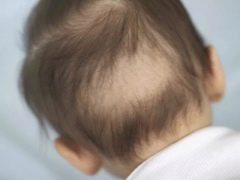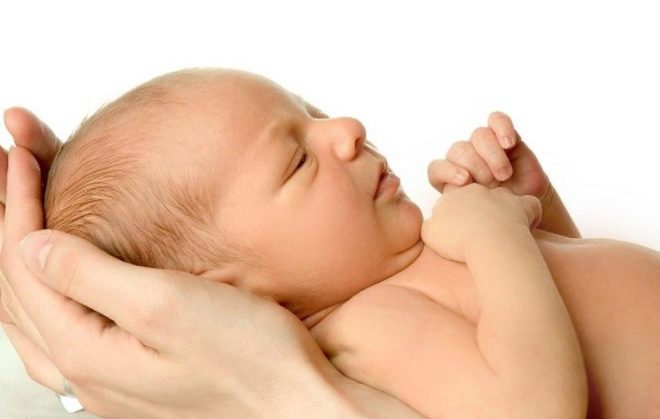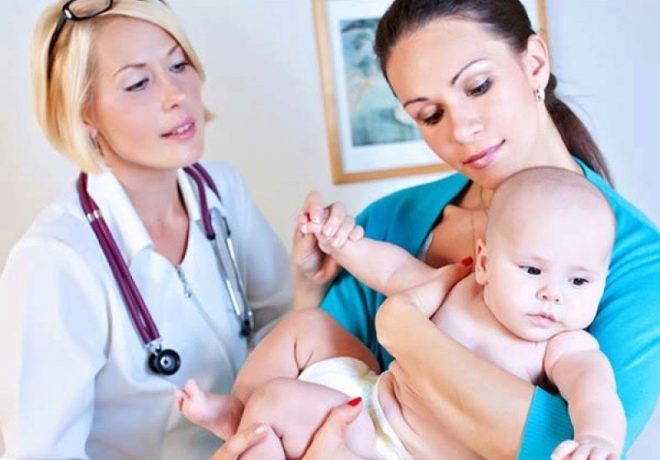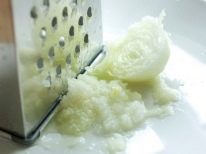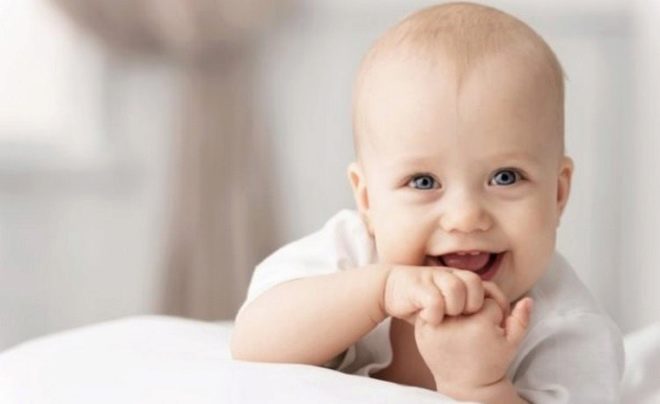Hair falls out in infants: the causes and their elimination
Almost all parents in one way or another are faced with such a problem as hair loss in an infant. In this regard, there are many questions, because any mother wants the baby to grow up healthy.
Why is this happening?
In a newborn baby, the hair has a very thin structure. They are more like fluff, and it is quite natural that this fluff begins to give way to normal dense hair. It takes about 3 months. Hair loss at this age should not be embarrassing, in their place will soon appear strong and strong real hair.
It is important to assess exactly where hair loss occurs. On the back of the head, for many years, the bald patch was qualified by doctors as a sign of rickets in infants. But recent studies have not found a close relationship between rickets and baldness of the neck. Bald nape can and without rickets. And in most cases this is exactly what happens. The reason lies in the banal wiping down his hair on a diaper, a pillow, because the baby is lying down for the most part of life.
Child health specialists say that in addition to the natural change of hair, on the loss of children's hairs affects the emotional background - Birth is a big stress for a child and it takes quite a lot of time to adapt to new living conditions, different from the usual intrauterine environment.
The cause of hair loss can be excessive care - too often washing the baby’s head with detergents. Even innocuous baby soap with frequent use destroys the natural lipid layer on the hair, which is necessary to protect the hair from the influence of environmental factors, which ultimately leads to thinning and injury to the hair shaft.
It is believed that the structure of baby hair is formed up to 4-5 years. And because moderate hair loss in the first year of life should not frighten parents at all. But there is also pathological alopecia, one should not pay attention to which is impossible.
When is baldness considered normal?
As already mentioned, up to three months of age, hair loss is physiological in nature, their change occurs almost imperceptibly. In a newborn, thin hairs may fall out on the head after scratching, changing caps, bathing. Then the bald patch on the back of the head described above may appear.
In order not to worry about rickets, parents need to consult a pediatrician.
No need to hide from the doctor of their fears and doubts about the state of children's hair. In almost 95% of cases in infancy, hair falls out for physiological reasons, and there is nothing wrong with that. In addition to changing hair, among natural causes can be called a change in hormonal levels. In the womb, the baby received a large amount of maternal sex hormones, after birth it is exclusively on its own hormonal support, which is partly due to weakness of the hairline. This situation does not require treatment. When the organism of the baby adapts to the new conditions of existence, hair growth and their natural change will enter a certain rhythm, the loss will stop.
Another very natural reason for baby hair loss is overheating of the head. Babies have one of the first head sweats, and therefore problems with hairs begin most often in children whose parents try to keep the child in warm caps and caps all the time.
If the cap is removed and the head is allowed to "breathe" freely, usually the fallout stops and is limited to the framework of the physiological change of hair.
When should I worry?
No need to worry under any circumstances. Even the pathological causes of hair loss are subject to correction, and the mother needs not to panic, but to treat the baby with the doctor.
Hair loss with large bald patches and scraps may be a sign of infant alopecia. In this case, the hair falls out strongly, by foci or totally, often over the entire area of the head, remaining only on the sides, and even then in a small amount. The bald spots are flat, smooth, not subject to flaking. In this case, you can not do without medical help, because alopecia can have many different reasons:
- autoimmune diseases in which hair follicles in an infant are perceived as hostile and destroyed by cells of the immune system;
- hormonal imbalance, disorders of the thyroid gland;
- fungal diseases of the scalp, ringworm;
- long-term use of antibiotics or vitamins in large quantities.
Hair bulbs can be mechanically traumatized. They are located in a child up to 3 months very close to the epidermis, and even too diligent combing of hairs in a child can cause hair loss.
It is impossible not to consider and rickets, in which baldness of the neck is just one of the clinical signs. Moms should clearly understand that on the basis of the bald spot no one has the right to make such a diagnosis. Rickets must be confirmed by radiographic examination of the bones.
It is very important to carefully evaluate the associated symptoms. If the hair just falls out and the child behaves vigorously, develops according to age, eats well, sleeps, then you should not look for diseases where there are none.
With the same rickets, for example, a 4-month-old and a 6-month-old child have excessive sweating, poor appetite, and constipation. When referring to a doctor, indicate exactly what additional symptoms you have noticed. This will help to quickly and correctly diagnose, if it is.
Treatment
The physiological causes of prolapse described above do not require treatment. Hair growth resumes on its own. With regard to pathological causes, it is of great importance for what reason it occurs. Fungal lesions are treated with antifungal drugs, and for focal alopecia, hormonal agents may be indicated topically in the form of an ointment and physiotherapy.
Need to understand that pathological baldness is treated for a long time. From parents therapy will require diligence, attention and great patience. Doctors will determine whether a baby has a vitamin deficiency. After that, a multivitamin preparation will be recommended to eliminate the deficiency of beneficial substances.
Hormonal remedies are recommended only for children who have total baldness.
It is important to understand the condition of the digestive organs. Very often it is a disorder of the pancreas or stomach that causes hair loss. In this case, a child gastroenterologist will examine and treat the child.
Among the folk remedies that with the permission of the pediatrician can use the parents, it can be noted onions and garlic. Prepare gruel from the bulb, which is applied to the scalp for 10 minutes, sometimes garlic is added to the gruel. This causes local irritation of the skin, increases blood flow to the hair follicles.
It is permissible to use burdock, castor and olive oils for children's hair. You can rinse baby hair with decoction of burdock root, as well as use raw chicken yolks to wash the head.
But it should be understood that the use of any home remedy requires mandatory prior consultation with a pediatrician.Some herbal ingredients from unconventional recipes can cause serious allergies in an infant.
If the child is prescribed medication, You should not abandon it in favor of folk medicine, it can not replace traditional therapy, but can supplement it if your doctor does not mind.
In most cases, the problem of alopecia in early childhood is solved safely. Cases of baldness in infants with a total loss of follicles medicine knows not so much. Usually it is hereditary, genetic alopecia, in which treatment, in fact, is powerless. When the baby grows up, the issue of hair transplantation can be discussed with the trichologist.
In all other cases, the problem of hair loss is almost always possible to cope up to 1.5 years. At the same time, most children do not need any treatment, everything goes on their own, and new hairs grow quickly.
It is always much easier to prevent hair loss in infants than to treat it later. To do this, immediately after discharge from the hospital due attention should be paid to prevention issues.
It is impossible to prevent the physiological loss of infant hairs, since this process is natural, necessary. But pathological reasons for parents to completely avoid it.
If a child has problems with the stomach, thyroid gland, in the very first months of life, it is necessary to carefully follow all the recommendations of the doctor, to take the baby to a specialist in time for examination.
Breastmilk is considered to be the best nutrition that allows you to give your baby all the necessary vitamins and minerals for growth and development; even the best adapted milk formulas cannot replace it. According to statistics, alopecia more often develops in children deprived of breastfeeding.
Do not wash baby's hair too often with special detergents, even if they are children’s, hypoallergenic and adapted for babies of the first months of life. Of course, you need to bathe your child every day, but you need to wash your head with soap and shampoo no more than once a week. When choosing children's products, you should carefully read the composition of the product - it should be as natural as possible. It is strictly forbidden to wash hair to children of the first year of life with adult detergents.
If the baby is prone to constipation, it is important to give him the right help in time. If you notice that a baby has a bald patch, hair is climbing heavily, in clumps, it is important not to postpone the visit to the doctor. Total alopecia at an early age is not the most favorable prognosis, and therefore it is important to begin treatment as soon as possible.
About the reasons hair loss in children, Dr. Komarovsky tells in the video below.
